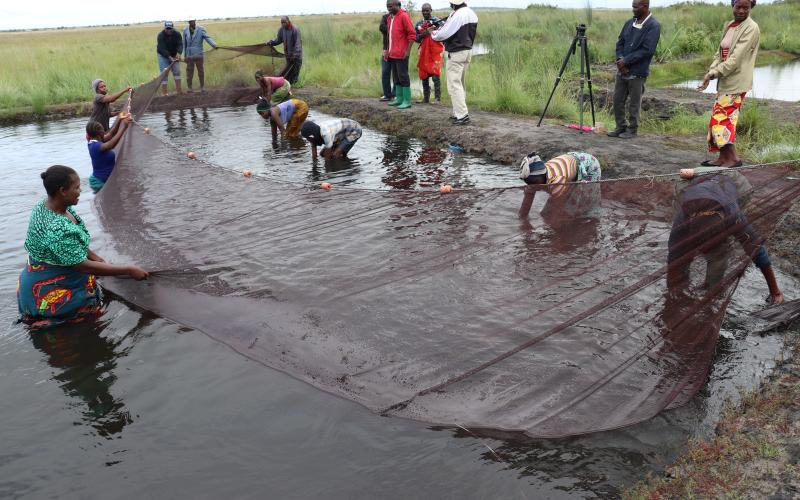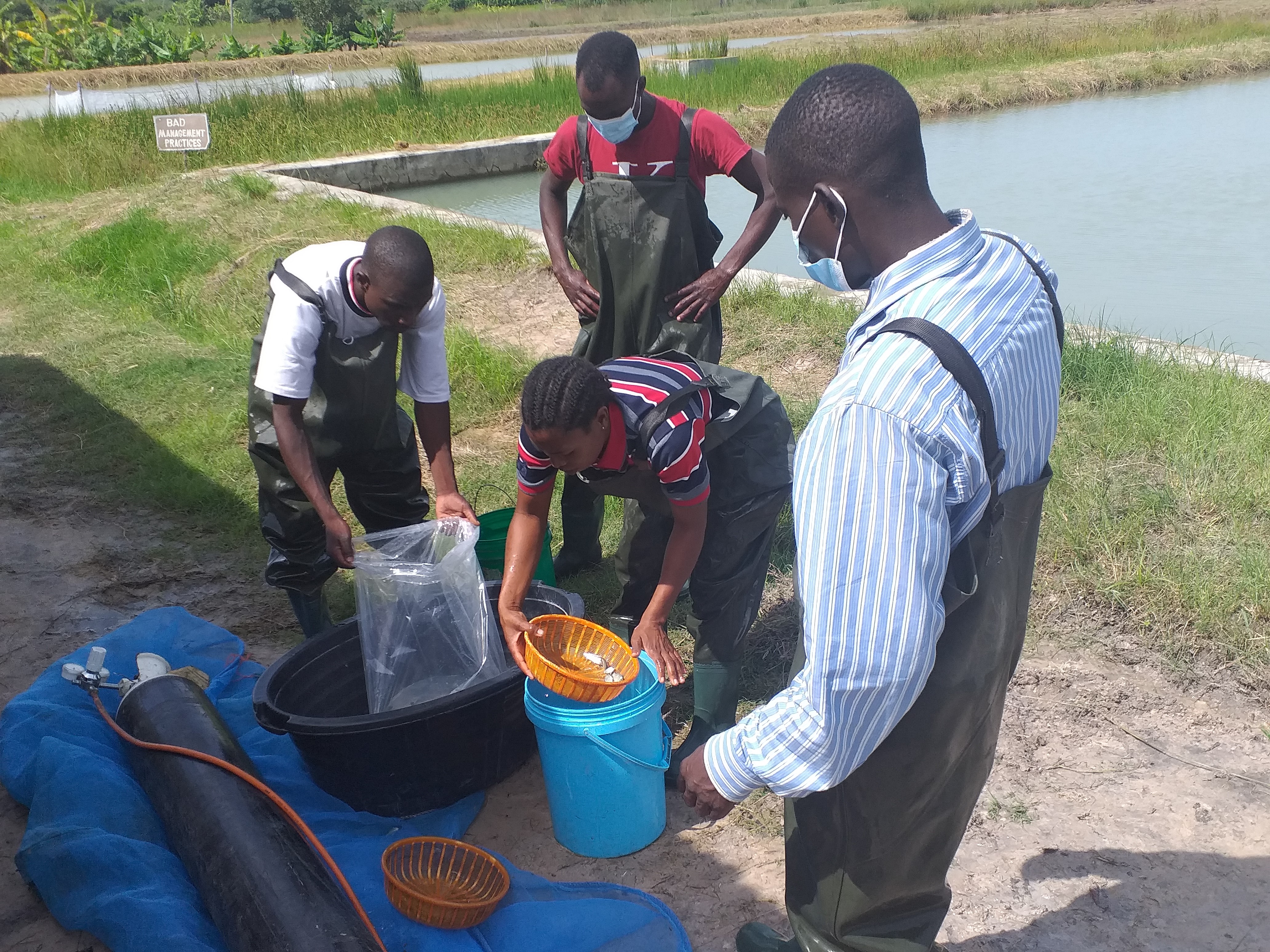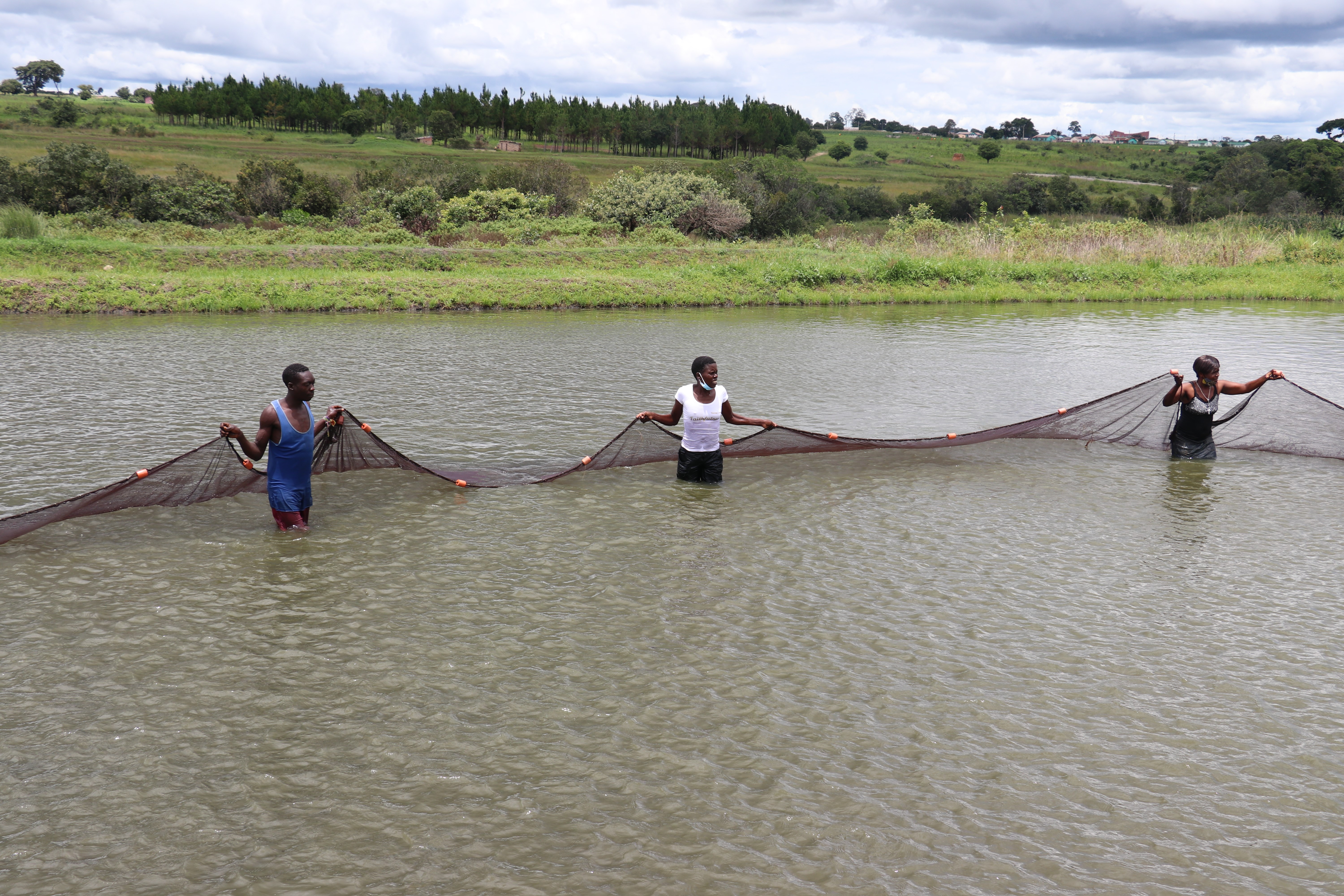
- Women in Zambia’s aquaculture sector and related supply chains are breaking barriers to increase the country’s food and nutrition security
- Here, WordFish’s communications assistant in Zambia, Agness Chileya, meets with the women on the ground and joins the Zambian government in honoring their often thankless contributions
While aquaculture in Zambia is still in its infancy, it is gradually transforming the economic livelihoods of women. Unlike past times when women and aquaculture were deemed incompatible, women are now gradually breaking barriers and taking on the male dominated sector. Women are now integral to the aquatic foods sector, contributing to the economic wellbeing of both society and their communities.
Not only is aquaculture transforming the lives of women, it is also beginning to break the cultural norms and traditional barriers that have long restricted women to household duties and men to more physical work. These norms in a way have perpetuated persistent poverty levels, especially in rural communities where most households have had men as sole providers.
Eliminating inequalities and promoting gender equity in the aquaculture and fisheries sector can thus lead to the reduction of malnutrition and improvement of food and nutrition security. However, the voices of African women and their vast contributions to the sector are often underacknowledged and sometimes completely unrecognized.
This year’s International Women’s Day is celebrated under the theme, Gender equality today for a sustainable tomorrow. It is time that women in fish supply chains are acknowledged for their contributions to food and nutrition security and recognized for their ability to thrive and flourish in the aquatic foods sector.
The women making a difference

Her name is Hellen Chama, and she is the manager at Hopeways Fish Farm in Mansa, Luapula Province. Chama is 26 years old, and she studied general agriculture at Don Bosco College of Agriculture in Lufubu, Mansa.
With little hands-on experience, she came to volunteer at Hopeways, where she obtained experience in fingerling production, including sex reversing of tilapia fingerlings. Chama now manages the farm and leads integrated agriculture and fish farming methods, which serves as one of the models in Luapula Province.
With a team of mostly male colleagues, Chama believes that gender is not a determinant of what one can achieve.
“When I am able to stand on my own financially, I want to set up my own hatchery and fish fingerling business. Fish farming is gratifying and a very viable business; women should not shun it as a dirty industry. I am making a living out of it and see that there is good profit in it,” said Chama.
Though outnumbered, women in aquaculture in Zambia have also come to see the power in solidarity and cooperation.
Sitting in the heart of Luwingu in Zambia’s Northern Province sits the Kalele Women’s Group—a women’s fish farming cooperative with a total of 45 members.
“Despite being labor-intensive, working together has helped us to thrive. We now even have a bank account where we keep our investments. As a cooperative, we have more than 10 ponds collectively. We encourage other women to emulate what we are doing as this venture has helped us in reducing the poverty and malnutrition levels in our community,” said the cooperative chairperson Rachel Mwaba.
Susan Kasakula, a member of the cooperative, added that she has also been encouraged to construct her own fish farming pond after being empowered with knowledge and skills.
“However, sometimes community members, especially the men, discourage the women from venturing into the business because they say it is a man’s job and is too labor-intensive. But from the benefits I’ve seen in the women’s group, I’m not relenting on my dream to have my own ponds,” she said.
Making a difference

WorldFish has taken on a gender transformative approach in the aquatic foods sector in order to contribute toward changing social norms that limit women’s abilities. By adopting gender-inclusive models, more women can be encouraged to venture into aquaculture.
The sector has the potential to change the narrative of gender inclusion in the economic and social sectors of the country. Norms and traditions that infringe on women should be curtailed to create an enabling environment for women to thrive and contribute meaningfully to the development of the country.
WorldFish joins the rest of the world and the Zambian government in recognizing and celebrating the women rising above the challenges in making a difference in their lives and communities in the fisheries sector.
